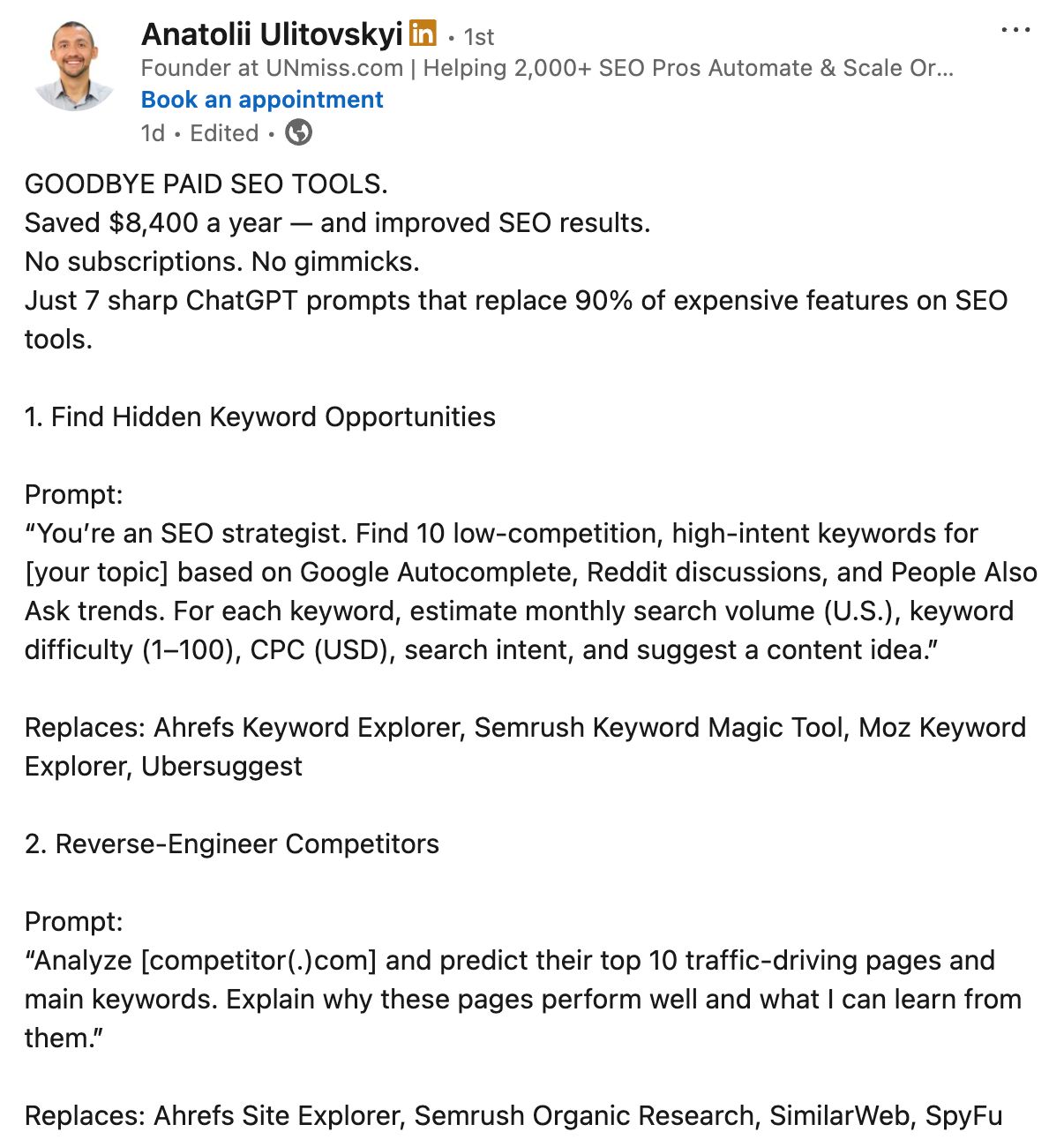
The post exploded. 500+ likes, 400+ comments, and people are loving it.
But SEOs didn’t.

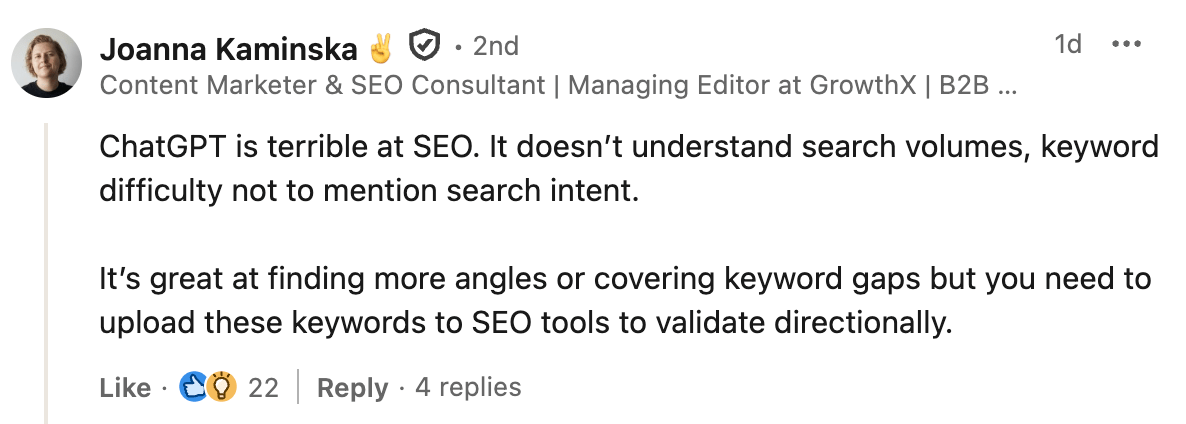
I can’t believe we’re still talking about this at the end of 2025. I want to believe it’s ragebait. But whether he’s antagonising on purpose, here’s the truth: ChatGPT doesn’t, and can’t, do SEO. It can only talk about it.
It can sound like an expert, drop the right terms, and even generate a believable table of “low-competition, high-intent” keywords with CPC and search volume.
But these numbers are completely fictional. They can’t see the data that powers SEO. They can only approximate it.
If you’re okay with this, then that’s perfectly fine.
What’s not okay is believing the numbers generated by ChatGPT to be true and other people telling you can simply trust what ChatGPT is generating.
To understand why the poster is wrong, you have to look at how LLMs actually work.
LLMs are trained on massive datasets of written language, learning patterns about how words typically follow each other. All they do is predict text.
ChatGPT isn’t pulling data from a live search index or a keyword database. In fact, there is a “hard stop” when their training data ends. For example, GPT-5’s cut-off was September 2024.
LLMs can’t track how rankings shift, how search volumes fluctuate, or how backlinks grow over time either.
When they give you a keyword with “1,200 monthly searches” or a difficulty score of “43,” those aren’t metrics. They’re simply guesses. The model has no real visibility into Google’s index or important SEO data.
As my friend Matti Ljungberg says, “Of course it can “estimate monthly search volume”. Just like I can estimate there are 47 million penguins living in your fridge. Pure guesswork, but it sounds convincing!”
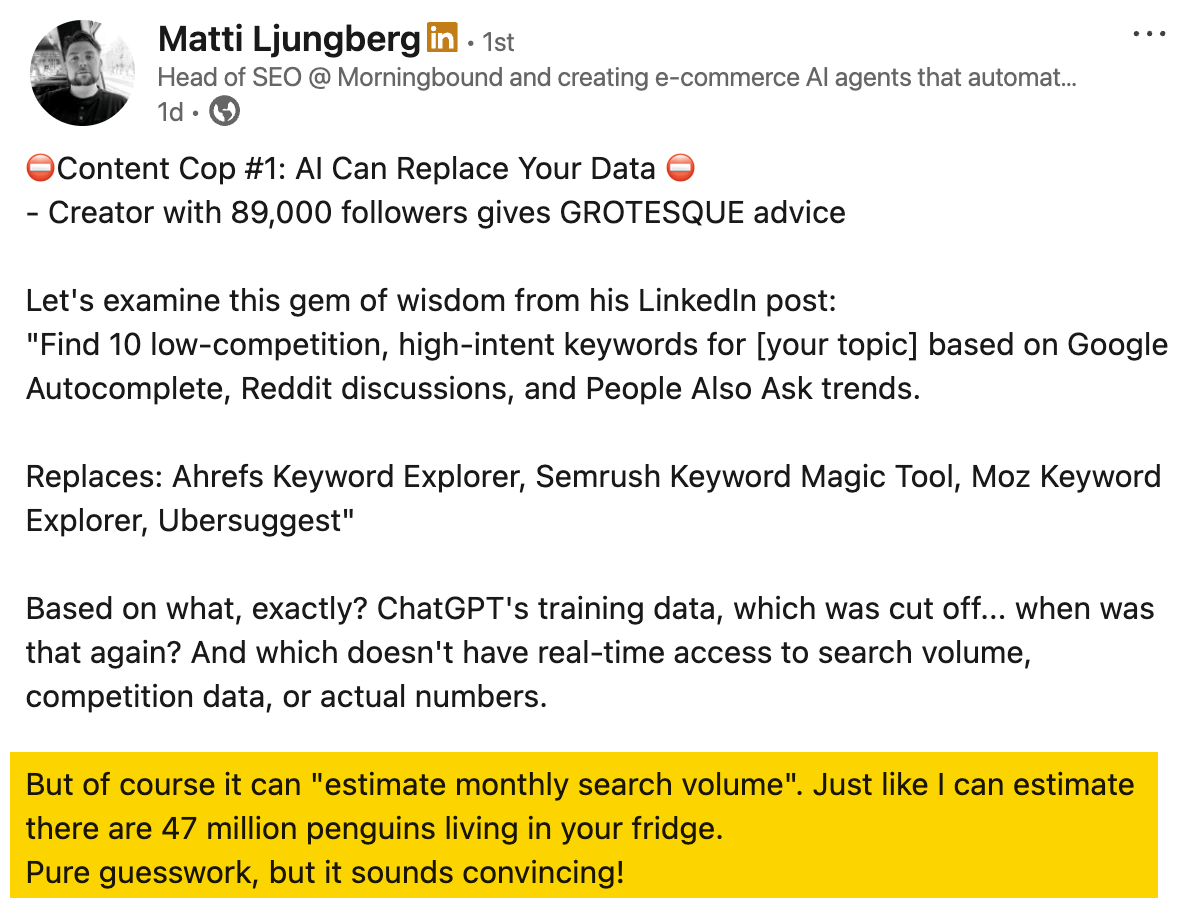
On the other hand, at Ahrefs, we collect, process, and store large amounts of important search data. We have the second most active web crawler in the world and we crawl and re-crawl trillions of pages, constantly updating those pages and their backlinks in our index.
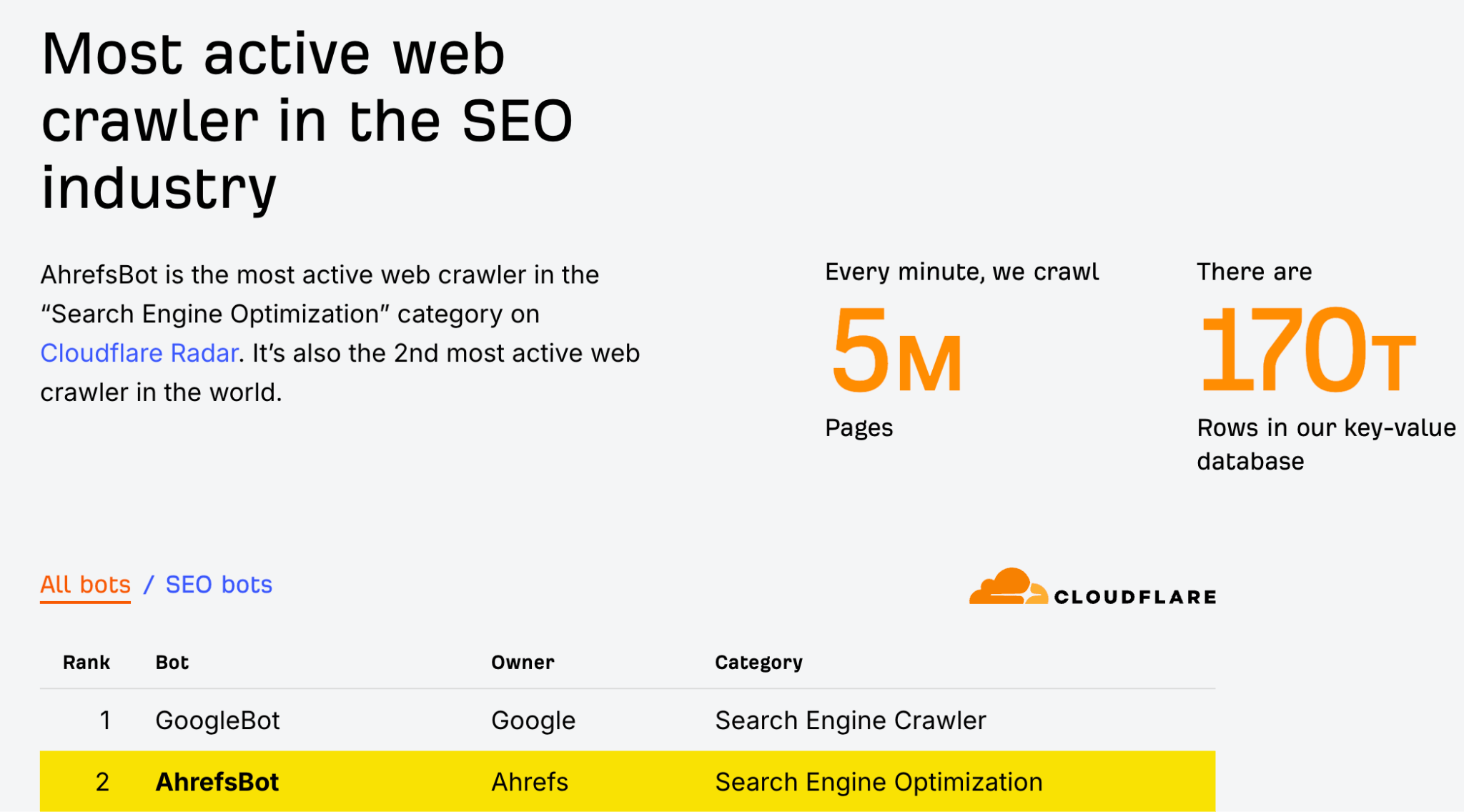
We also have billions of keywords (28 billion, to be exact) in our keyword database.
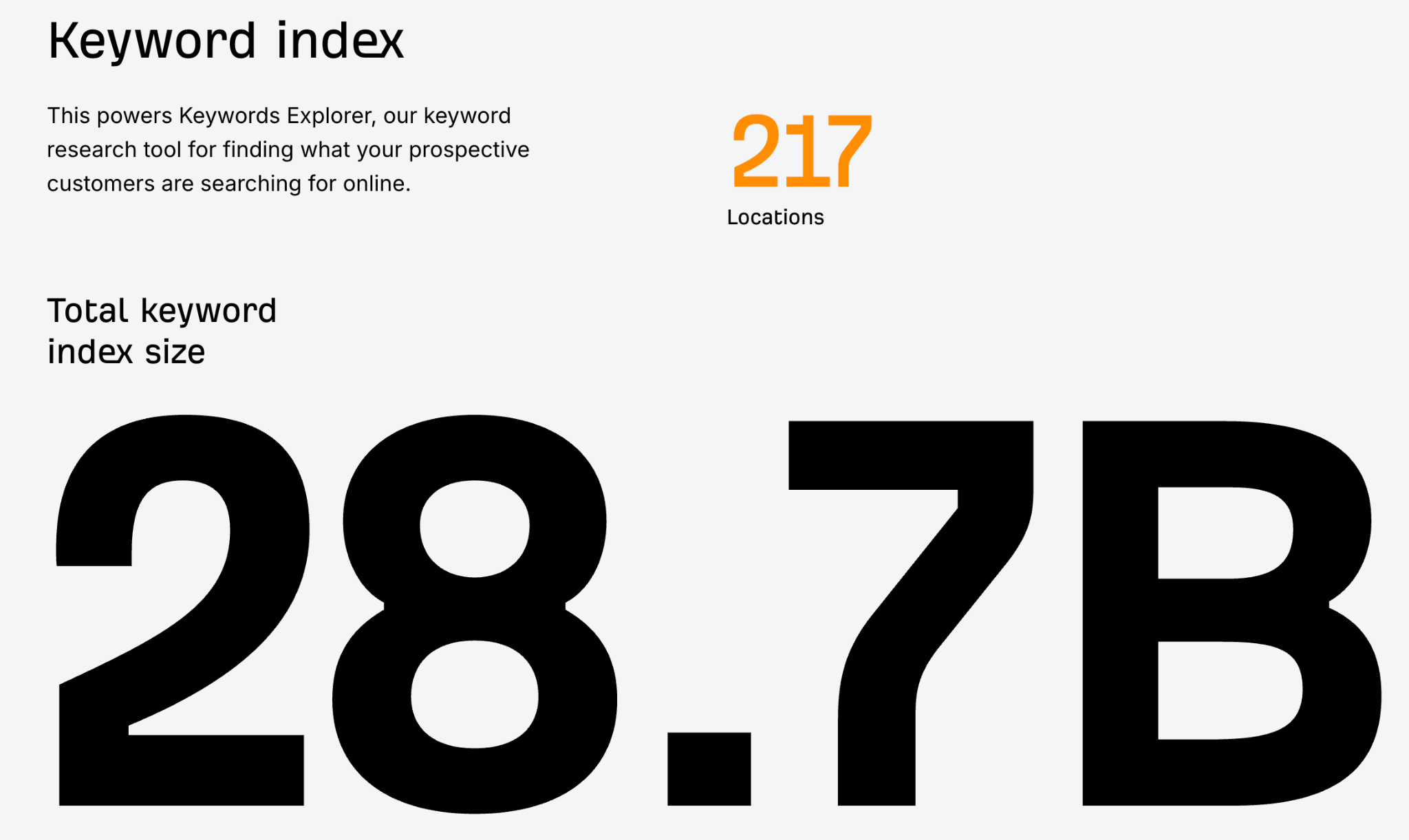
We use all of these data to calculate metrics that matter to SEOs: Domain Rating, search volume, organic search traffic, keyword difficulty, backlink profile, search trends, and more.
So while ChatGPT can describe SEO perfectly, it can’t perform it. You still need SEO data to do good analysis.
The good news: the problem isn’t with AI. It’s the disconnect between LLMs and SEO data.
So, if you can connect ChatGPT and other LLMs to live SEO data, you could get actionable SEO insights as if you were talking to a friend.
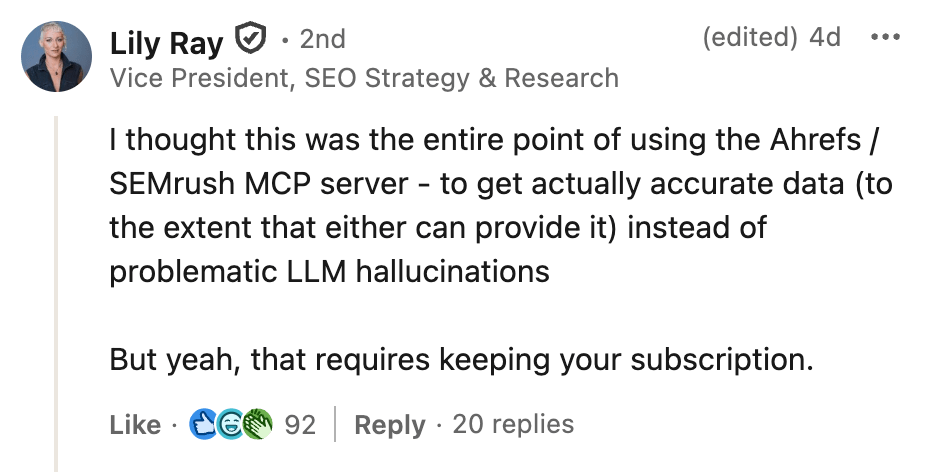
Guess what? You can. Because that’s exactly what the Ahrefs MCP (Model Context Protocol) does.
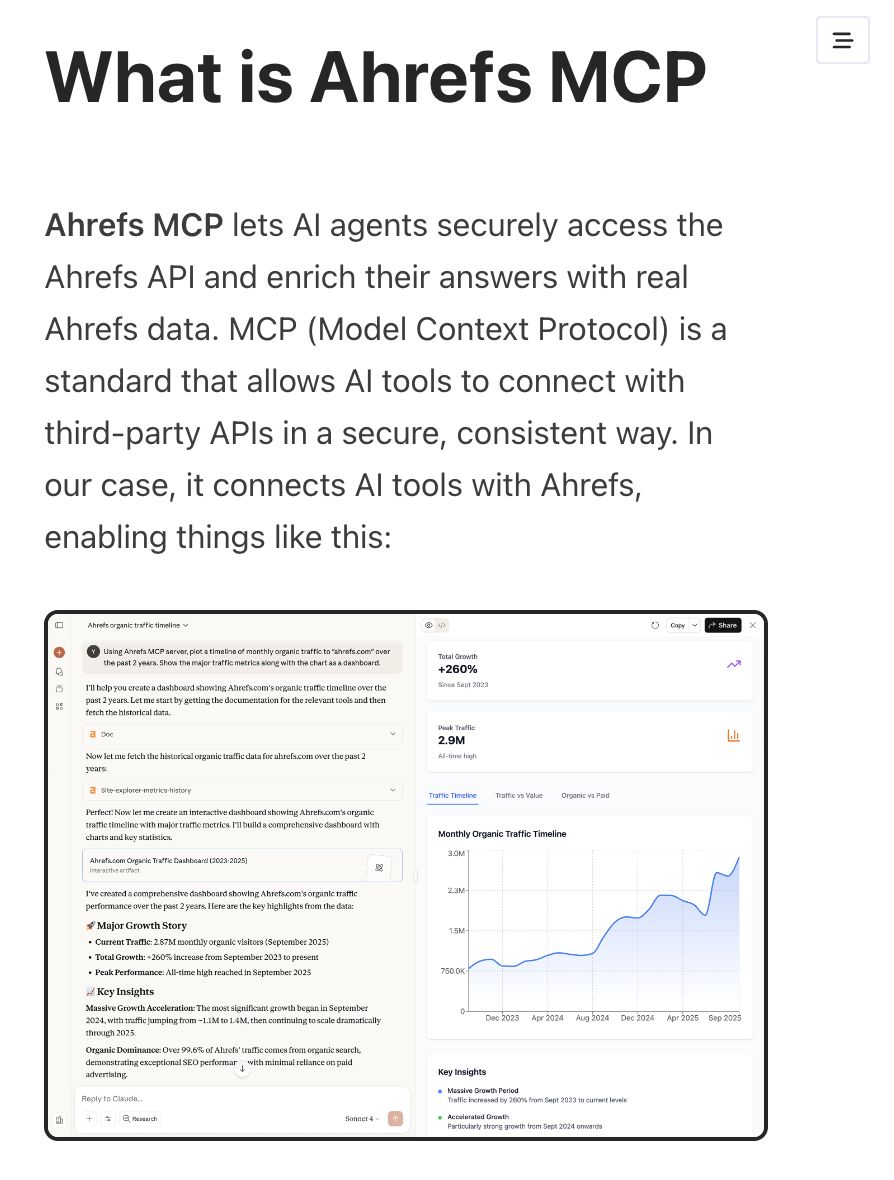
In simple terms, the Ahrefs MCP is a bridge, a standard that allows AI assistants like ChatGPT or Claude to connect directly to Ahrefs’ data. Instead of relying on their training data, your favorite AI assistant can now make live API calls to Ahrefs and pull in real keyword metrics, backlinks, and site performance data.
Now, instead of using a prompt like this and having ChatGPT hallucinate keyword data for you…

You can connect your Ahrefs account with ChatGPT or Claude, then use this prompt:
Tell me about the rankings [Competitor] has on the first page of Google that [My Site] doesn’t have first-page rankings for.
To discover content gaps between your website and your competitors.
Cool right? In fact, once you connect Ahrefs with the AI assistant of your choice, the poster’s prompts now do make sense. Because you’re no longer asking ChatGPT to hallucinate. You’re asking it to call Ahrefs’ database and return real metrics from our live database.
Want more use cases on how to use our MCP with AI assistants? Check out this post on the 15 best use cases from SEO legend Glen Allsopp.
Final thoughts
To put simply: The prompts didn’t fail because they were bad. They failed because they were blind. But with our MCP, they can now ‘see’.
That said, even with access to real data, AI isn’t suddenly an SEO strategist. It still needs a human who knows what to do with it.
The MCP doesn’t replace your judgment, your workflow, or your experience. It just removes the busywork between insight and action. Instead of switching between filters, exports, and dashboards, you can just ask your question and get the data you trust, faster.
AI doesn’t replace SEO. On the contrary, it helps you scale.



